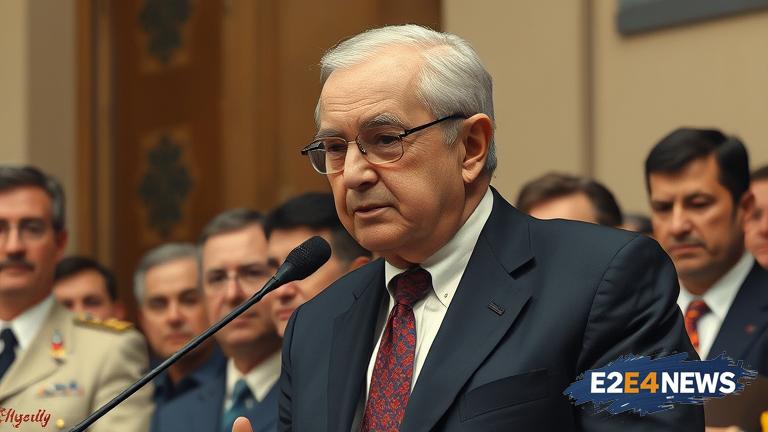Ion Iliescu, a key figure in Romania’s transition from communism to democracy, has died at the age of 95. Iliescu served as the country’s first post-communist president from 1990 to 1996 and played a crucial role in shaping Romania’s future. Born on March 3, 1930, in Oltenița, Romania, Iliescu was a prominent politician and engineer who rose to prominence during the communist era. He was a member of the Communist Party and held various positions, including minister of youth and secretary of the party’s central committee. However, Iliescu’s views on communism began to shift in the late 1980s, and he became a vocal critic of the regime. In 1989, Iliescu was a key figure in the revolution that overthrew communist dictator Nicolae Ceaușescu. After Ceaușescu’s execution, Iliescu became the president of the National Salvation Front, a coalition of opposition groups that would eventually become the ruling party. In 1990, Iliescu was elected as Romania’s first post-communist president, a position he held until 1996. During his presidency, Iliescu implemented various reforms aimed at transitioning Romania to a market-based economy and integrating the country into European institutions. He also played a key role in promoting democratic values and human rights in Romania. Iliescu’s presidency was marked by significant challenges, including a severe economic crisis and social unrest. However, he remained committed to his vision of a democratic and prosperous Romania. After leaving office, Iliescu continued to be involved in politics, serving as a senator and later as the honorary president of the Social Democratic Party. Iliescu’s legacy is complex and multifaceted, with some praising his role in transitioning Romania to democracy and others criticizing his handling of the economy and social issues. Despite these criticisms, Iliescu remains an important figure in Romanian history, and his passing has been met with an outpouring of tributes and condolences from across the country. Iliescu’s death has also sparked a national debate about his legacy and the future of Romanian democracy. As Romania continues to navigate the challenges of the 21st century, Iliescu’s vision of a democratic and prosperous country remains an important guiding principle. Iliescu is survived by his wife, Nina, and their two children. His funeral was attended by thousands of mourners, including current and former politicians, as well as ordinary citizens who came to pay their respects to a man who played a significant role in shaping Romania’s history. Iliescu’s passing has also been marked by an outpouring of tributes from international leaders, who praised his commitment to democracy and human rights. The European Union has also issued a statement expressing its condolences to the people of Romania and praising Iliescu’s role in promoting European integration. As Romania looks to the future, Iliescu’s legacy serves as a reminder of the importance of democratic values and the need for continued reform and progress. Iliescu’s death has also sparked a renewed interest in Romanian history and the country’s transition to democracy. Scholars and historians are re-examining Iliescu’s presidency and his role in shaping Romania’s post-communist era. The Romanian government has also announced plans to establish a museum and cultural center dedicated to Iliescu’s life and legacy. Overall, Ion Iliescu’s passing has been met with an outpouring of tributes and condolences, and his legacy will continue to be felt in Romania and beyond for years to come.
